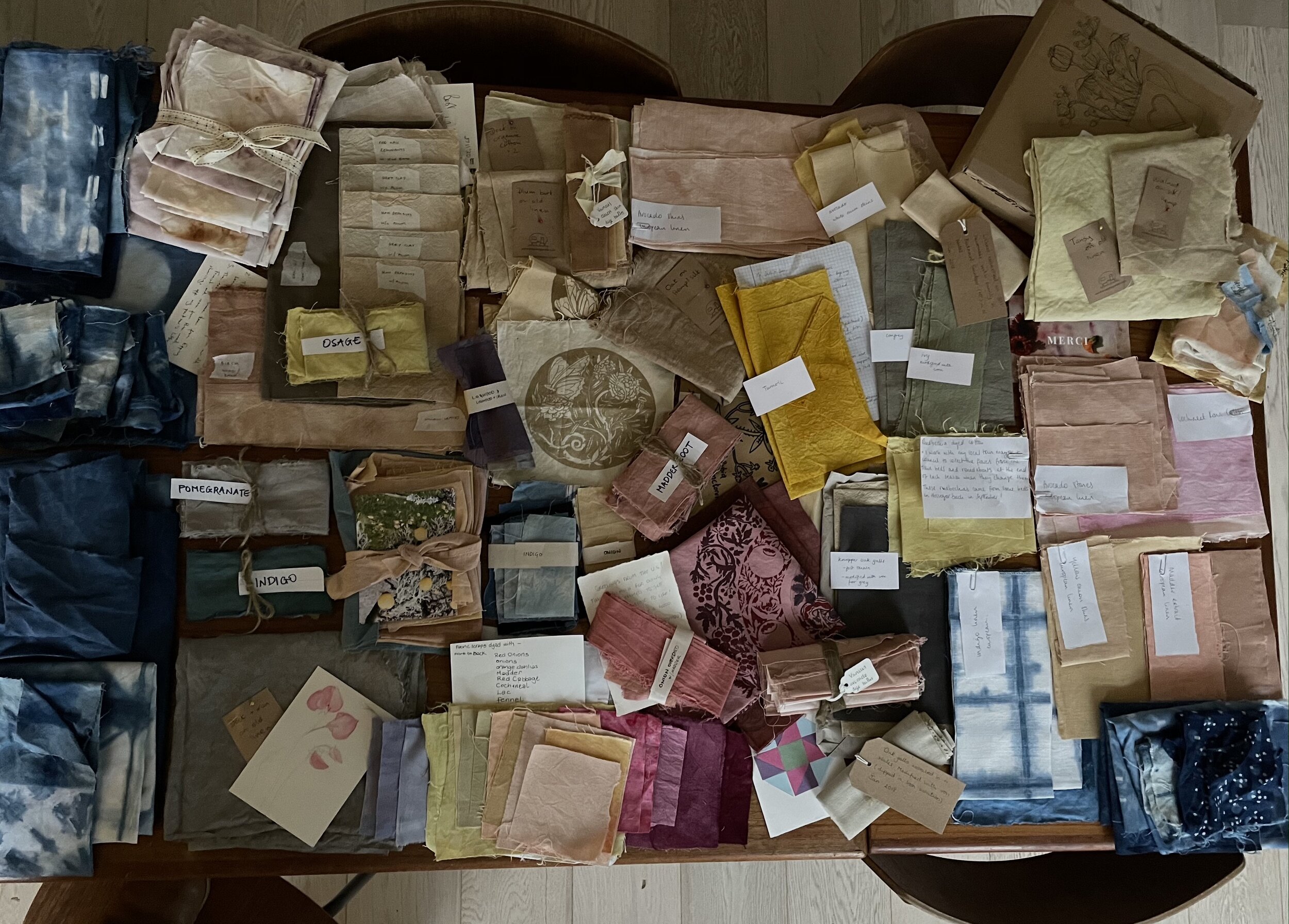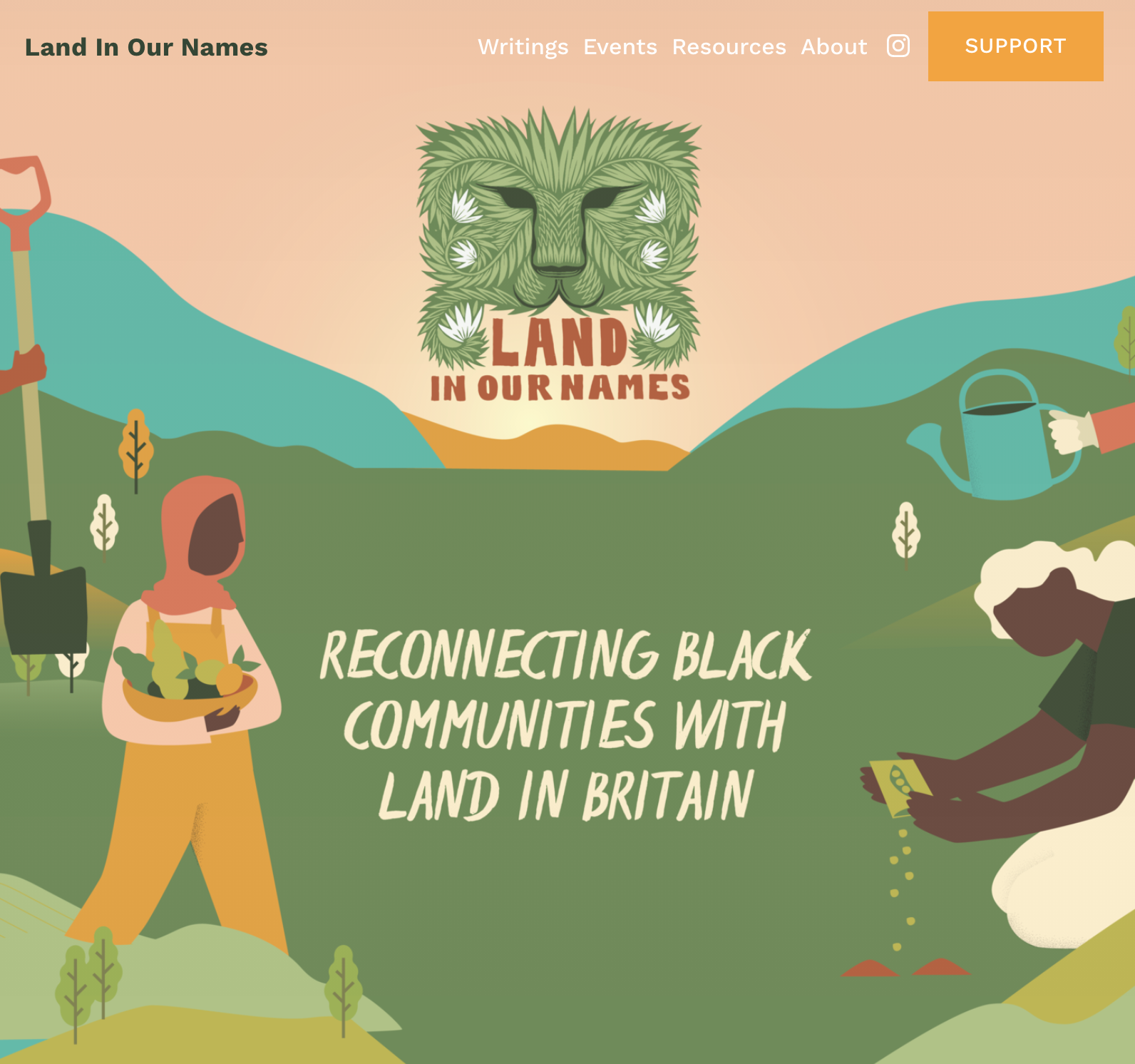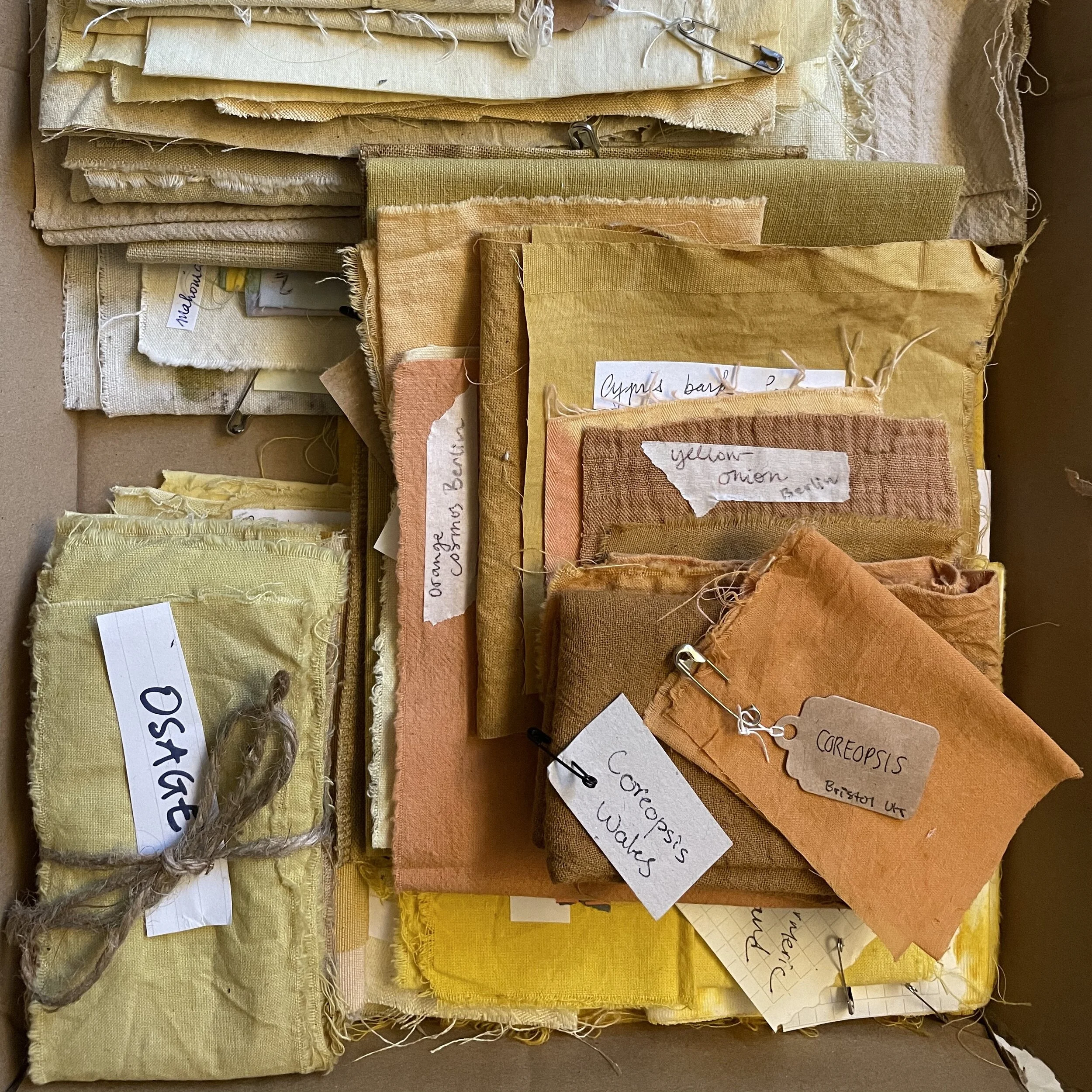
Land In Our Names
Quilt Fundraiser
Decolonise the Garden & Public Library Quilts
2020 - 2021
Racial Justice is land justice.
In April 2021, our fundraiser & quilt draw raised 18k GBP (25k USD) for Land in Our Names.
These funds are currently supporting growers grants for Black and POC farmers building equitable food systems in the UK.

A plant-dyed quilt from the land
& for the land.
A collaboration between gardener Sui and quilter Jess, the LION quilt is made only from plant-dyed fabric donated by over 50 botanical dyers. With cloth from 11 countries the quilt honours traditions of quilting for anti-racism & gardening for community. This work uses principles of mutual aid to advocate for Black land rights as integral to UK reparations for the violences of Colonialism.
Read our quilt’s full story online at
Tatter Blue Library


Image: Land in Our Name’s website landing page.
Land in Our Names
“We reimagine dynamics of land stewardship and are committed to a deep healing of the colonial-rooted trauma that separates us from the land. We understand land rights as the basis for revolution and sovereignty in our communities. We are working to transform the narrative around land in Britain in how it relates to intersections of race, gender and class for systemic change.”
Our community quilt fundraiser process
November, 2020
Call for fabric donations
We called on our community of artists, dyers, and gardeners from around the world. We received over 50 donations of plant dyed fabric from England, Scotland, Ireland, Wales, Germany, France, Poland, the Czech Republic, Croatia, and five different states from the USA. (Fabric donations now closed.)
January, 2021
Making the quilt
In the early months of 2021 Public Library Quilts inventoried the incredible plant-dyed fabric donations we received. Jess then designed and sewed a quilt from the beautiful colours generously given from gardens and foraging around the world. Our community shared histories and insights about dye plants & land justice.
April 12 - 30th, 2021
Fundraiser & quilt draw
We ran a fundraiser and draw for the LION quilt from April 12th through April 30th, 2021. Donations were made directly to Land in Our Name with one entry per person for the quilt. Each participant was asked to donate in relationship to their financial privilege and everyone was considered equally for a chance to win the quilt.
Hear from some of our contributing plant dyers
“I look at natural dyeing as a pathway to liberation for both myself and others. It gives us a direct connection to the natural world in a positive, ancestral way. It also ties us to our heritage as gardeners, foragers, and farmers, and helps us tap into those ancient, heirloom creative outlets that are largely lost outside of tribal and indigenous societies.
The reason I support organisations like Land In Our Names is because they understand that having access to and stewardship of land is such an impactful means to attaining social, racial and economic equity.”
— Tenille, Georgia, USA
“I explored plant dyeing recently as a response to learning more about the Native American worldview and the understood relationship they believe is between humans and the earth. Then, while in my dye class, we explored the painful history of Indigo and how land was stolen and misused in order for another group to make an exuberant profit at the high costs of people's lives, economy, and general well being. These are the things I was reflecting on as I dyed the fabric. When the class ended I was contemplating the best use of my newly dyed fabrics and then, by some chance, I came across the Land in Our Names quilt fundraiser. Given the educational journey I just had with these fabrics, I truly knew there was no better way to use them than to support land and racial justice.”
— Taylor, Oregon, USA
“The term land justice – I am not sure I was familiar with it before (with English not my mother tongue). But it spoke so urgently to me. I still feel the loss of the ground, the garden, that was home until my early teen years very acutely, and I am painfully aware that I will never be able to live there again. I deeply believe humans need land, soil, the earth to ground, to watch the cycle of growing and wilting. I feel forcefully separated from the land, and I know as a white woman in this country I am still so very privileged in my access to, and sense of security in it. This need to ground myself and to live with plants is what drew me to natural dyeing years ago. And to learn about land justice and how it intersects with racial justice, in this time right now – I feel like you truly handed me words and tools that I lacked before. This is a like seed planted within me, and I will make sure to take care of it. And spread it.”
— Elke, Germany
“I've always grown stuff, on allotments mainly, and love it. It took me 35 years to get access to enough land to make a living from growing.
Finding affordable land was hard and if I was black I know it would have been harder. There is mystery and a lack of shared knowledge around access to land. If you know how it works or already have it you're okay. If you don't, you struggle. That's not right. We need a different, fully inclusive approach. ”
— Paula, Scotland
Decolonise the Garden brings critical discourse about anti-racism to how we nurture our relationship with the natural world.
With instagram posts & educational resources sourced from the gardening and horticulture community, Decolonise the Garden has become a vibrant grassroots effort to challenge racism in the UK.
Decolonise the Garden is curated by a POC gardener who also provides examples of how to engage with and address the way systemic racism effects the language we use to describe institutions, cultures, and land. She helps readers turn a more critically engaged eye to current political debates about our collective responsibility to decolonise our ways of knowing the past and present.
Professional and amateur gardeners, horticulturalists, allotment enthusiasts, and farmers from around the world have shared their contributions to her dialog by using the hashtag ‘decolonisethegarden’ on instagram.






